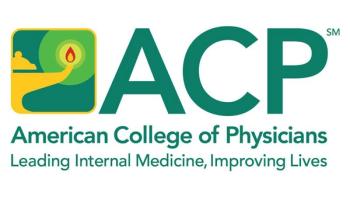
Phase 1B clinical trial begins for KIO-301 for vision restoration in patients with retinitis pigmentosa
With the support of Harrington Discovery Institute at University Hospitals, an ophthalmic therapeutic dubbed KIO-301, initially developed by Richard Kramer, PhD, at the University of California, Berkeley (UCB), has successfully been granted approval to start a Phase 1b, first-in-human clinical trial.
With the support of Harrington Discovery Institute at University Hospitals (UH), an ophthalmic therapeutic dubbed KIO-301, which was initially developed by Richard Kramer, PhD, at the University of California, Berkeley (UCB), has successfully been granted approval to start a Phase 1b, first-in-human clinical trial.
Currently under the stewardship of Kiora Pharmaceuticals, Inc., via a license with UCB, Inc., the drug is intended to restore lost vision in patients with Retinitis Pigmentosa (RP)-a rare, genetic eye disease that causes severe loss of functional vision and affects an estimated 100,000 people in the U.S.
According to a University Hospitals/Cleveland Medical Center news release, the retina of the eye has 2 types of light-sensitive cells called rods and cones. Patients with RP lose these cells over time, and most people with the disease are legally blind by age 40. Kramer and collaborators have developed a series of drug compounds with promise to restore vision by sensing light.
“When we look at the world, we’re constantly moving our eyes and need to respond to changes of light, not just the presence or absence of it,” Kramer said in the release. “The drugs we developed are light sensitive and have the potential to restore clinically meaningful vision.”
The release noted that after initially discovering the compounds, Kramer and his team needed to figure out a way to safely and effectively introduce them into the eye. He applied for a grant through the Harrington Discovery Institute and the Foundation Fighting Blindness to receive funding and work with an advisory team.
“With the help of our Harrington advisors, we developed a delivery strategy that would work for a prolonged period of time,” he said. “The goal was to be able to inject the compound into the eye and have it disperse to cover the whole retina, not just stay localized at the place it was injected. The delivery model we developed was incredibly effective, and is the strategy that will be used in the clinical trial.”
According to the news release, the Phase 1b clinical trial will take place at The Royal Adelaide Hospital in Adelaide, South Australia and enrollment is expected to begin in the third quarter of this year. Initially, a variety of doses will be tested on a small group of patients, and Kramer will consult with the pharmaceutical team along the way.
According to Jonathan S. Stamler, MD, president, Harrington Discovery Institute, Robert S. and Sylvia K. Reitman Family Foundation Distinguished Professor of Cardiovascular Innovation and Professor of Medicine and of Biochemistry at UH and Case Western Reserve University, Harrington Discovery Institute was established 20 years ago to accelerate promising academic discoveries into medicines for unmet needs.
“Dr. Kramer’s research, drug development and clinical trial are a true success story of our mission, and an excellent example of how we aim to help researchers develop new drugs for rare diseases that do not yet have treatments,” Stamler said.
Kramer also noted that the investigators have been working on this research for 15 years, and this is a key step forward for their efforts.
“I’m very thankful for my Harrington advisory team,” he said in the news release. “Getting advice from experts in real world drug discovery and delivery, that also have experience in the pharmaceutical space, was very important to get to where we are today.”
Kramer is a 2017 Gund-Harrington alum and is based at University of California, Berkeley.
Newsletter
Keep your retina practice on the forefront—subscribe for expert analysis and emerging trends in retinal disease management.




























